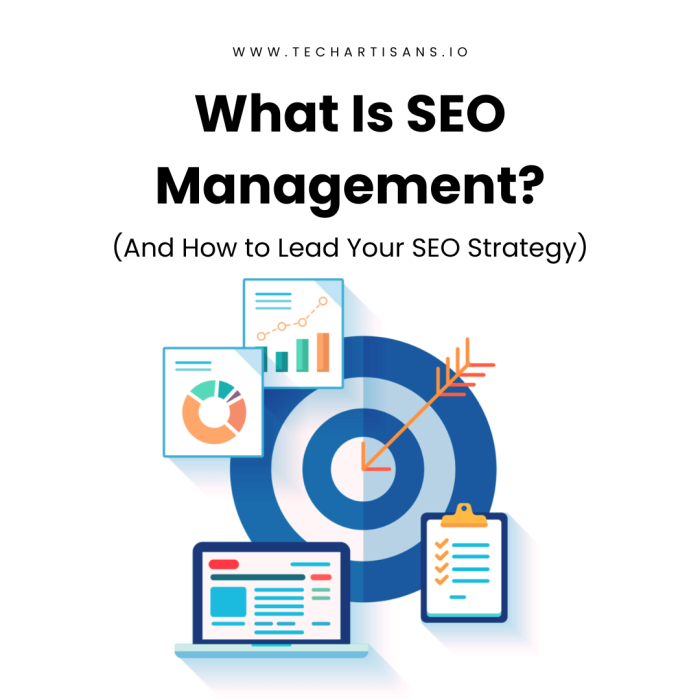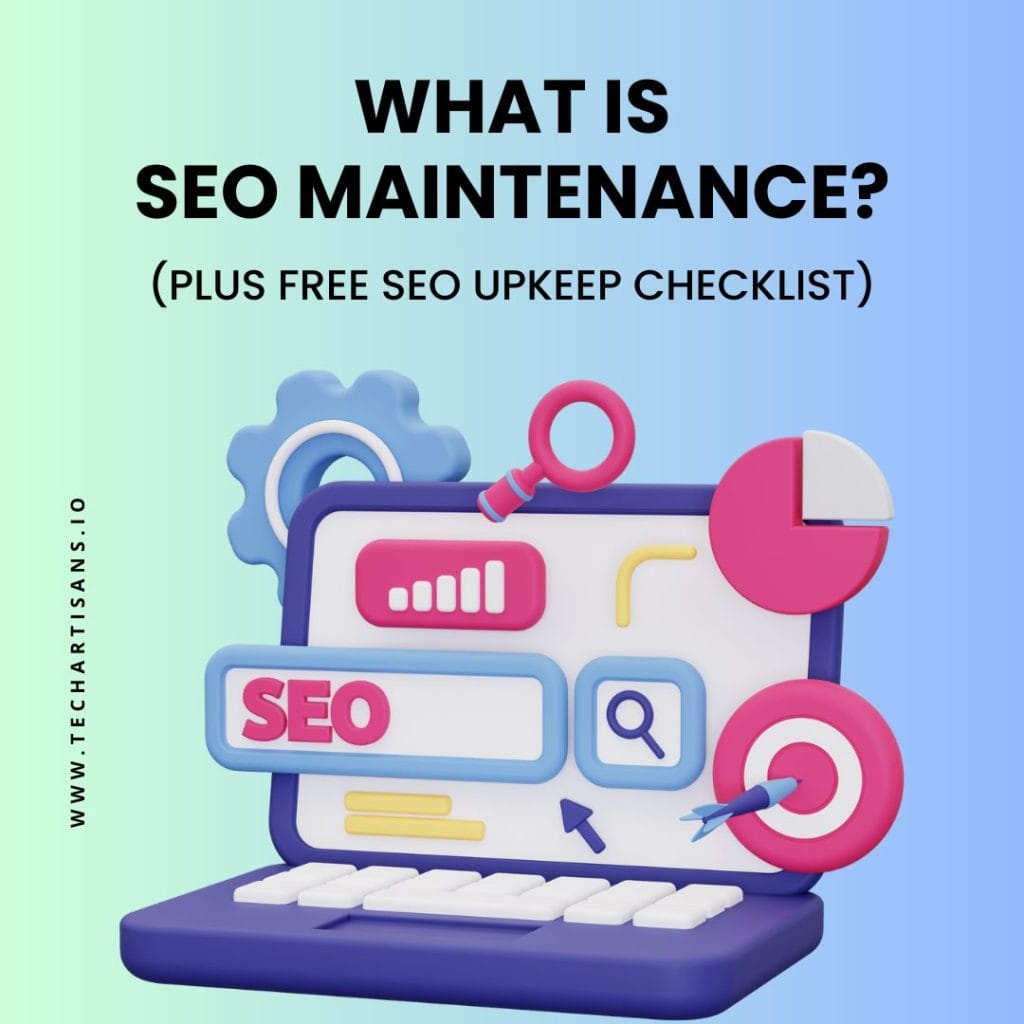In digital marketing, SEO management is essential for boosting online visibility. It encompasses planning, implementing, and overseeing a business’s SEO strategy, including keyword research, site optimization, and performance tracking. Successful SEO management improves website rankings, user experience, and online presence, fostering business growth in the digital realm.
In this article, I will explain how to manage on-site and off-site SEO and its importance. Moreover, I will guide you on how you can effectively lead your SEO strategy.
What is SEO?
SEO, or Search Engine Optimization, is a digital marketing technique focused on improving a website’s visibility in the organic search results of search engines like Google. It drives more traffic, higher rankings, and online discoverability. Effective SEO management shapes your online presence and fuels business growth.
Read Mastering SEO: A Step-by-Step Guide and Plan
1. Significance of Search Engine Optimization
In the digital age, SEO is crucial. It drives organic traffic, enhances user experience, and boosts customer engagement and conversions. Effective SEO management builds a strong online presence and a competitive edge for businesses.
2. Four Pillars of SEO
The four SEO pillars are:
- On-site SEO (keywords and meta tags),
- Content (relevant and high-quality material),
- Off-site SEO (backlinks), and
- Technical SEO (site structure and speed)
To complement your explanation of the four pillars of SEO, consider adding a link to SEO Acronym and How It Impacts on Business, which elaborates on the broader business implications of SEO.
Essentials of SEO Management
SEO Management is the backbone of a successful digital marketing strategy. It includes website optimization, content creation, link building, and technical elements to enhance rankings and drive organic traffic.
Enhance this section with a link to What is PPC Management to illustrate the connection between SEO and other digital marketing strategies like PPC.
SEO Management in Improving Organic Visibility
SEO Management is vital for enhancing a website’s organic visibility, driving targeted traffic, and boosting search engine rankings while providing a seamless user experience. In essence, it’s the pathway to a strong organic digital presence.
You can provide a more comprehensive understanding by linking to the SEO Analytics Guide which offers insights into tracking and measuring SEO success.
Key Components of Effective SEO Strategy
To create a winning SEO strategy, you must grasp its fundamental components. These elements improve your website’s visibility, increase organic traffic, and boost your brand’s online presence. Let’s explore the core components of a successful SEO strategy.
1. User-Focused Content
User-focused content is vital for effective SEO, incorporating depth, originality, relevancy, frequency, and multimedia. It enhances your site’s relevance, distinguishes you from competitors, engages your audience, signals site activity to search engines, and enriches user experience, ultimately improving your SEO.
2. On-Page SEO
On-page SEO consists of three crucial elements. Firstly, Employing relevant keywords in your content to improve search engine visibility. Secondly, Connecting pages to enhance user experience and facilitate search engine indexing. Lastly, Optimize images for speed, using alt tags and descriptive filenames to improve user experience and SEO performance.
3. Off-Page SEO
Off-page SEO involves factors beyond your website, such as backlinks, social media shares, and brand mentions. Backlinks are like “votes” from other websites endorsing your content. Social media shares boost your online presence, and brand mentions on other sites enhance your authority and credibility.
When explaining off-page SEO, a link to PPC Analysis and Tips can offer additional strategies that complement SEO efforts.
4. Technical SEO
Technical SEO refers to optimizing your website for the crawling and indexing phase, improving site speed, mobile-friendliness, crawlability, security, and overall site structure. It’s a crucial component of SEO management, ensuring that search engines can effectively understand and rank your site.
Discussing technical SEO can be enhanced with a link to the SEO Analytics Guide for Beginners, providing novice readers with a starting point for understanding SEO analytics.
5. Local SEO
Local SEO is improving your online presence to attract local customers. It includes strategies like enhancing your website’s performance, obtaining positive reviews, and managing your Google My Business profile.
For readers interested in local SEO, a link to How to Master SEO provides comprehensive strategies for mastering various aspects of SEO.
Steps to Lead Your SEO Management
Following are the steps to lead your SEO management:
1. Aligning SEO with Business Goals
For successful SEO management, align your strategy with business goals. Identify objectives like boosting visibility or increasing conversions. Tailor your approach with the right keywords and audience-focused content. SEO is not one-size-fits-all; it’s a customized solution to optimize resources and ROI.
2. Conducting Keyword Research
Keyword research is crucial in SEO. It’s about identifying your potential customers’ terms when searching for your products. SEO tools like Google’s Keyword Planner help find relevant keywords, assess competition, and understand search volume to target the most beneficial keywords for your strategy.
3. Optimizing Website Structure and UX
A user-friendly website is essential for SEO. It needs a clear structure and clear navigation for easy access to information. A great user experience, with fast loading speeds, mobile-friendly design, and quality content, boosts user satisfaction and search rankings.
4. Creating High-Quality, SEO-Optimized Content
High-quality, SEO-optimized content is the backbone of SEO management. It must provide value, answer audience queries, and incorporate keywords naturally. Regular updates, various content forms, and proper tags are crucial. Quality content boosts site visibility and credibility.
5. Building a Strong Backlink Profile
A strong backlink profile is vital in SEO. It includes external sites linking to your content, which boosts authority and ranking. Seek high-quality, relevant backlinks from reputable sources, as low-quality links can harm SEO.
6. Monitoring Performance and Adapting Strategies
Monitoring performance and adjusting strategies is vital in Search Engine Optimization management. Use tools like Google Analytics to track metrics such as organic traffic and conversion rates. Regularly adapt and refine your strategies for ongoing improvement in your SEO efforts.
7. SEO News and Best Practices Updates
Staying updated with SEO news and best practices is essential in SEO management. Search engine algorithms evolve, so follow reputable SEO blogs, forums, and webinars to stay informed and adapt your strategy for continued success.”
On-Site vs. Off-Site SEO Management
In SEO management, two key strategies are pivotal in determining your website’s visibility and rank on search engine result pages: On-Site and Off-Site SEO. Understanding the distinct roles and benefits of each is crucial for creating a comprehensive and effective SEO strategy.
To deepen the understanding of this distinction, include a link to Future of SEO and Coming Trends, which explores evolving trends in both on-site and off-site SEO.
1. Differences and Significance
On-site SEO optimizes individual web pages for higher rankings and relevant traffic. It enhances your website’s visibility and relevance to search engine queries.
Off-site SEO, on the other hand, boosts rankings by building a strong backlink profile, signaling your site’s importance to others online. Both are crucial for effective SEO management.
2. Tasks Involved In On-site and Off-site SEO
On-site SEO optimizes individual web pages for higher rankings and relevant traffic. It enhances your website’s visibility and relevance to search engine queries.
Off-site SEO involves guest posting, gaining backlinks from other sites, and turning brand mentions into links, enhancing your site’s authority and visibility. These actions play a crucial role in SEO management.
Role of SEO Agencies and Consultants
SEO Agencies and Consultants are pivotal in SEO management, providing expert guidance and services to help businesses maximize their online visibility and achieve their digital marketing objectives.
1. When and Why Outsource SEO Management
Outsourcing SEO is wise when your business lacks in-house expertise or resources, especially for smaller businesses. SEO’s ever-changing nature demands the time and expertise an agency or consultant can provide. This external perspective can enhance your website’s performance and visibility.
2. Benefits of Hiring Experts for SEO Tasks
Hiring SEO experts offers vital advantages, including deep knowledge of best practices, strategic insights, and time savings. Their expertise enhances your site’s visibility and ranking, and their adaptability keeps you at the forefront of SEO trends for continued success.
Steps to Lead Your SEO Management
Following are the steps to lead your SEO management:
1. Aligning SEO with Business Goals
For successful SEO management, align your strategy with business goals. Identify objectives like boosting visibility or increasing conversions. Tailor your approach with the right keywords and audience-focused content. SEO is not one-size-fits-all; it’s a customized solution to optimize resources and ROI.
2. Conducting Keyword Research
Keyword research is crucial in SEO. It’s about identifying your potential customers’ terms when searching for your products. SEO tools like Google’s Keyword Planner help find relevant keywords, assess competition, and understand search volume to target the most beneficial keywords for your strategy.
3. Optimizing Website Structure and UX
A user-friendly website is essential for SEO. It needs a clear structure and clear navigation for easy access to information. A great user experience, with fast loading speeds, mobile-friendly design, and quality content, boosts user satisfaction and search rankings.
4. Creating High-Quality, SEO-Optimized Content
High-quality, SEO-optimized content is the backbone of SEO management. It must provide value, answer audience queries, and incorporate keywords naturally. Regular updates, various content forms, and proper tags are crucial. Quality content boosts site visibility and credibility.
5. Building a Strong Backlink Profile
A strong backlink profile is vital in SEO. It includes external sites linking to your content, which boosts authority and ranking. Seek high-quality, relevant backlinks from reputable sources, as low-quality links can harm SEO.
6. Monitoring Performance and Adapting Strategies
Monitoring performance and adjusting strategies is vital in Search Engine Optimization management. Use tools like Google Analytics to track metrics such as organic traffic and conversion rates. Regularly adapt and refine your strategies for ongoing improvement in your SEO efforts.
7. SEO News and Best Practices Updates
Staying updated with SEO news and best practices is essential in SEO management. Search engine algorithms evolve, so follow reputable SEO blogs, forums, and webinars to stay informed and adapt your strategy for continued success.”
On-Site vs. Off-Site SEO Management
In SEO management, two key strategies are pivotal in determining your website’s visibility and rank on search engine result pages: On-Site and Off-Site SEO. Understanding the distinct roles and benefits of each is crucial for creating a comprehensive and effective SEO strategy.
1. Differences and Significance
On-site SEO optimizes individual web pages for higher rankings and relevant traffic. It enhances your website’s visibility and relevance to search engine queries.
Off-site SEO, on the other hand, boosts rankings by building a strong backlink profile, signaling your site’s importance to others online. Both are crucial for effective SEO management.
2. Tasks Involved In On-site and Off-site SEO
On-site SEO optimizes individual web pages for higher rankings and relevant traffic. It enhances your website’s visibility and relevance to search engine queries.
Off-site SEO involves guest posting, gaining backlinks from other sites, and turning brand mentions into links, enhancing your site’s authority and visibility. These actions play a crucial role in SEO management.
Role of SEO Agencies and Consultants
SEO Agencies and Consultants are pivotal in SEO management, providing expert guidance and services to help businesses maximize their online visibility and achieve their digital marketing objectives.
In discussing the benefits of hiring SEO experts, linking to How to Monitor SEO Rankings can provide readers with insight into one of the key tasks these professionals handle.
1. When and Why Outsource SEO Management
Outsourcing SEO is wise when your business lacks in-house expertise or resources, especially for smaller businesses. SEO’s ever-changing nature demands the time and expertise an agency or consultant can provide. This external perspective can enhance your website’s performance and visibility.
2. Benefits of Hiring Experts for SEO Tasks
Hiring SEO experts offers vital advantages, including deep knowledge of best practices, strategic insights, and time savings. Their expertise enhances your site’s visibility and ranking, and their adaptability keeps you at the forefront of SEO trends for continued success.
Conclusion
Effective SEO management is crucial for business growth in the digital realm, shaping website visibility and customer engagement. Staying updated with SEO practices is vital as algorithms evolve. Small to medium businesses benefit from SEO, and if resources are limited, consider outsourcing to experts. Embrace SEO as a long-term strategy for adapting to the ever-changing digital landscape.































